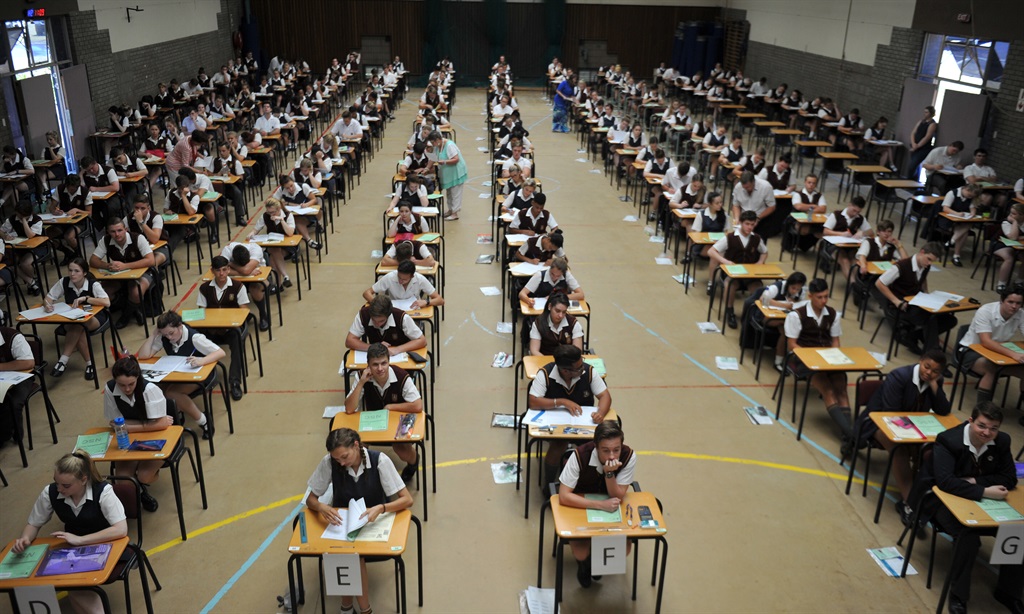
Education authorities have proposed for the scrapping of the senior certificate by 2020 in favour of everyone writing matric exams at the end of the year.
Officials made a presentation to the portfolio committee on basic education in Parliament today.
The senior certificate is equivalent to a matric certificate, however, it is meant for adults – people aged 21 and older.
Youth between ages of 18 and 21 who could not complete their education due to circumstances beyond their control were allowed to sit for the senior certificate exams, but their plight would first need to be verified by provincial education authorities.
The senior certificate exams sit in June.
If approved by Basic Education Minister Angie Motshekga as a policy, the move will be rolled out in phases: first by merging the senior certificate with matric supplementary exams currently taking place in March.
The merger of the supplementary exams with the senior certificate is expected to take place in June 2019.
Both the senior certificate and the supplementary exam papers are set out of the curriculum.
This will ultimately lead to the phasing out of both qualifications, allowing everyone to sit for national matric exams – National Senior Certificate (NSC) – by 2020.
Departmetnt spokesperson Elijah Mhlanga confirmed that the end goal was to do away with the senior certificate by 2020.
“Supplementary exams papers will be NSC papers and eventually the senior certificate will be phased out. Remember, even the senior certificate has now been aligned to CAPS [Curriculum Assessment Policy Statements],” Mhlanga said.
He said the department has briefed the committee on the possible merger of the NSC.
Despite that the 2016 supplementary exams showed improvement of the overall performance of the last year’s class, Mhlanga said the department was concerned that the participation of learners writing supplementary exams remained low.
“More than 123 000 candidates enrolled for the February 2017 examinations but only 76 000 actually wrote. The department has been monitoring the patterns for several years and despite several attempts to improve the participation rate no change has taken place. As a result the department intends merging the February supplementary examinations with the June national examinations,” Mhlanga said.
Following the supplementary exams, last year’s national matric pass rate has jumped from 72.5% to 74.5%.
The department’s head of national examinations and assessment, Dr Rufus Poliah, said no candidates would be disadvantaged as a result of the proposed changes.
“The current examinations are not serving its intended purpose. Learners that write the supplementary exams are unable to access admission to higher education institutions in the year they write these examinations. There is a large percentage of no shows followed by poor performance in the supplementary examinations. We therefore want to reduce the Grade 12 national examination opportunities from three to two,” Poliah said.
The department believes that the streamlining of the three exams into two exams before ultimately having everyone writing the NSC will be cost effective and efficient especially from setting, printing and marking of scripts.
School-based assessments would still form part of candidates sitting for supplementary exams when they will write the senior certificate in June as part of the first phase of the merger.
When finally sitting for NSC, the senior certificate candidates will be registered in separate system but will write the same examination as everyone else.
Another announcement made by education authorities in parliament included that plans to remodel the Annual National Assessment (ANA) were at an advanced stage.
The ANA was suspended in September 2015 following an impasse between unions and Motshekga’s department.
The Annual National Assessments (ANA) are standardised national assessments for languages and mathematics in the senior phase (Grades 7 - 9), intermediate phase (Grades 4 – 6) and in literacy and numeracy for the foundation phase (Grades 1 – 3).
In 2015, unions instructed their members who are teachers in schools to boycott administering the ANA saying they were opposed to the format of tests, among other things, although they believed it was a useful tool to measure gaps in the education system.
A task team was subsequently formed to review the ANA.
Experts were consulted by the task team to make their input in July 2016.
As a result of the round table talks, a proposed assessment model has been crafted, the departmental report tabled in parliament stated.
The report said a second task team for curriculum and assessment, comprising unions and education officials, has been established.
This team has been granted until the end of next month (July) to resolve outstanding matters relating to national assessment models.
Currently, processes into conducting systematic evaluations of the education system including administering of Grade 3, 6 and 9 were undervway.
“The vacuum created by the termination of ANA will not be allowed to continue given the lack of national standardised assessment in the general education and training education band,” the report stated.
The band refers to Grades 1 to 9 and
Grades 10 to 12 are referred to as a further education and training band.




 Publications
Publications
 Partners
Partners








